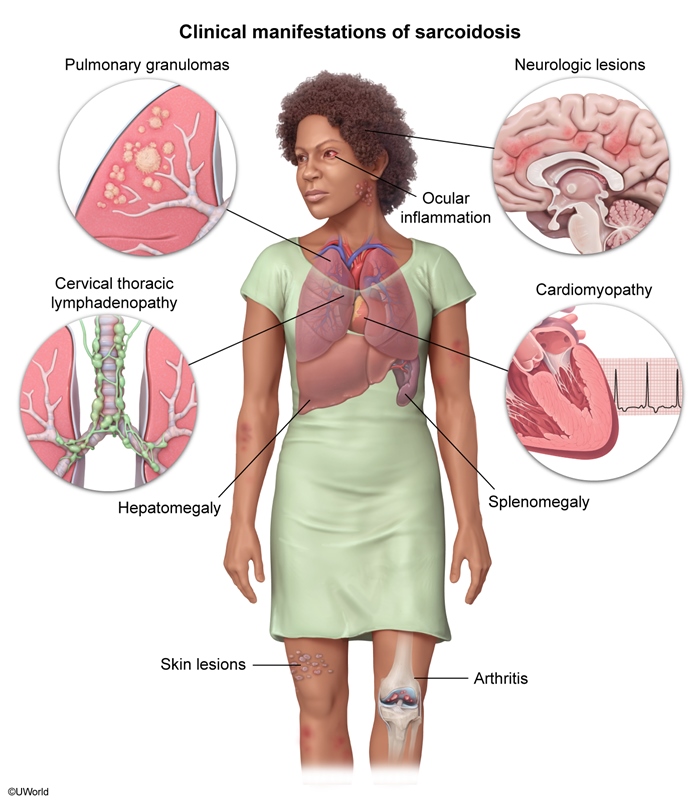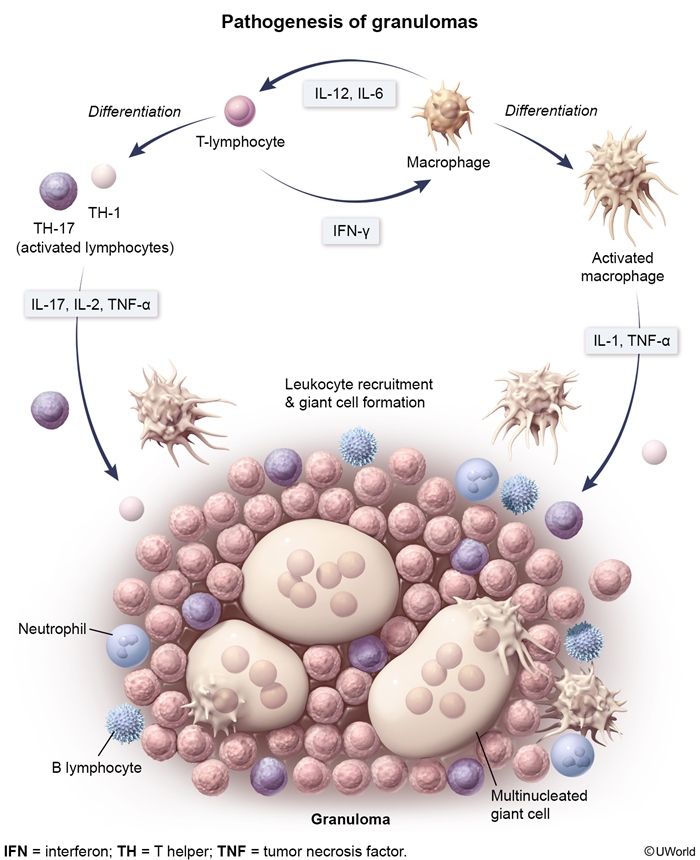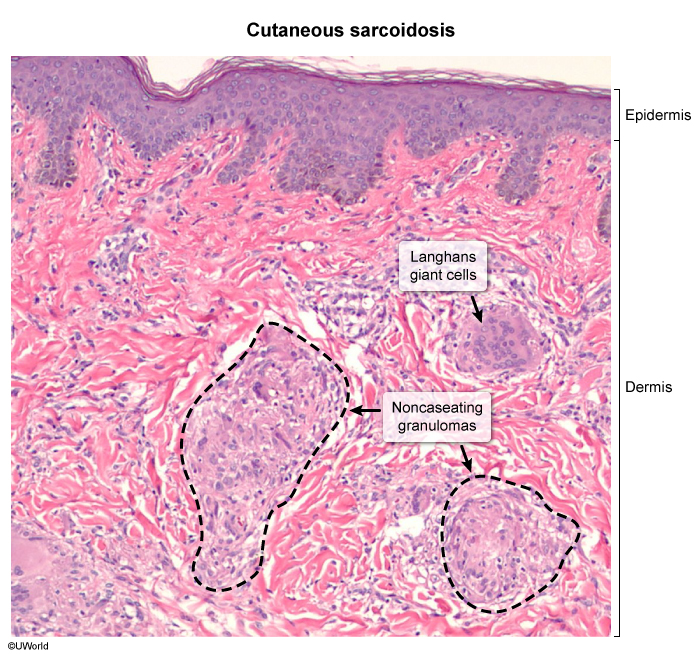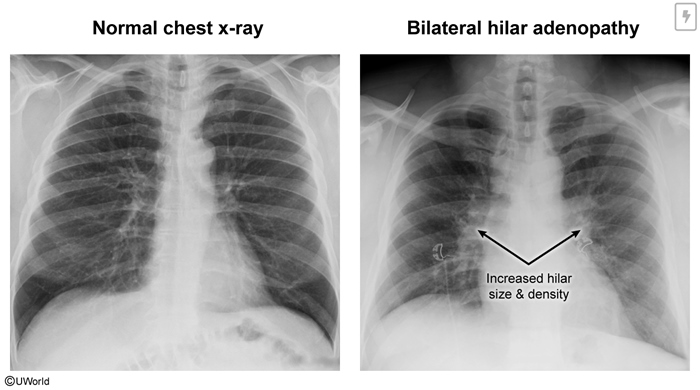Sarcoidosis
Article Sections
Introduction
Sarcoidosis is an idiopathic condition featuring granulomatous inflammation that affects multiple organ systems, with prominent involvement of the lungs and lymphatics (Figure 1). Because granulomas can affect virtually any organ, sarcoidosis is a "great masquerader" in medicine.
Pathogenesis
The molecular basis of sarcoidosis is unclear. Although granulomas are typically a response to failed clearance of known antigens (eg, chronic fungal infection, hypersensitivity pneumonitis), no trigger has yet been identified in sarcoidosis. Speculative antigens include beryllium, mycobacteria, and Propionibacterium, but no direct causation has been established.
Sarcoidosis clusters among first-degree relatives, especially among individuals of African, Scandinavian, and Puerto Rican descent, supporting a genetic component. Several human leukocyte antigen (HLA) alleles (eg, HLA-DRB1 variants) are common in patients with sarcoidosis. When bound to speculative antigens (eg, beryllium), these HLA-encoded major histocompatibility complexes appear to strongly engage T-cell receptors. Sustained coactivation of CD4
Continue Learning with UWorld
Get the full Sarcoidosis article plus rich visuals, real-world cases, and in-depth insights from medical experts, all available through the UWorld Medical Library.
Unlock Full AccessFigures


Images

